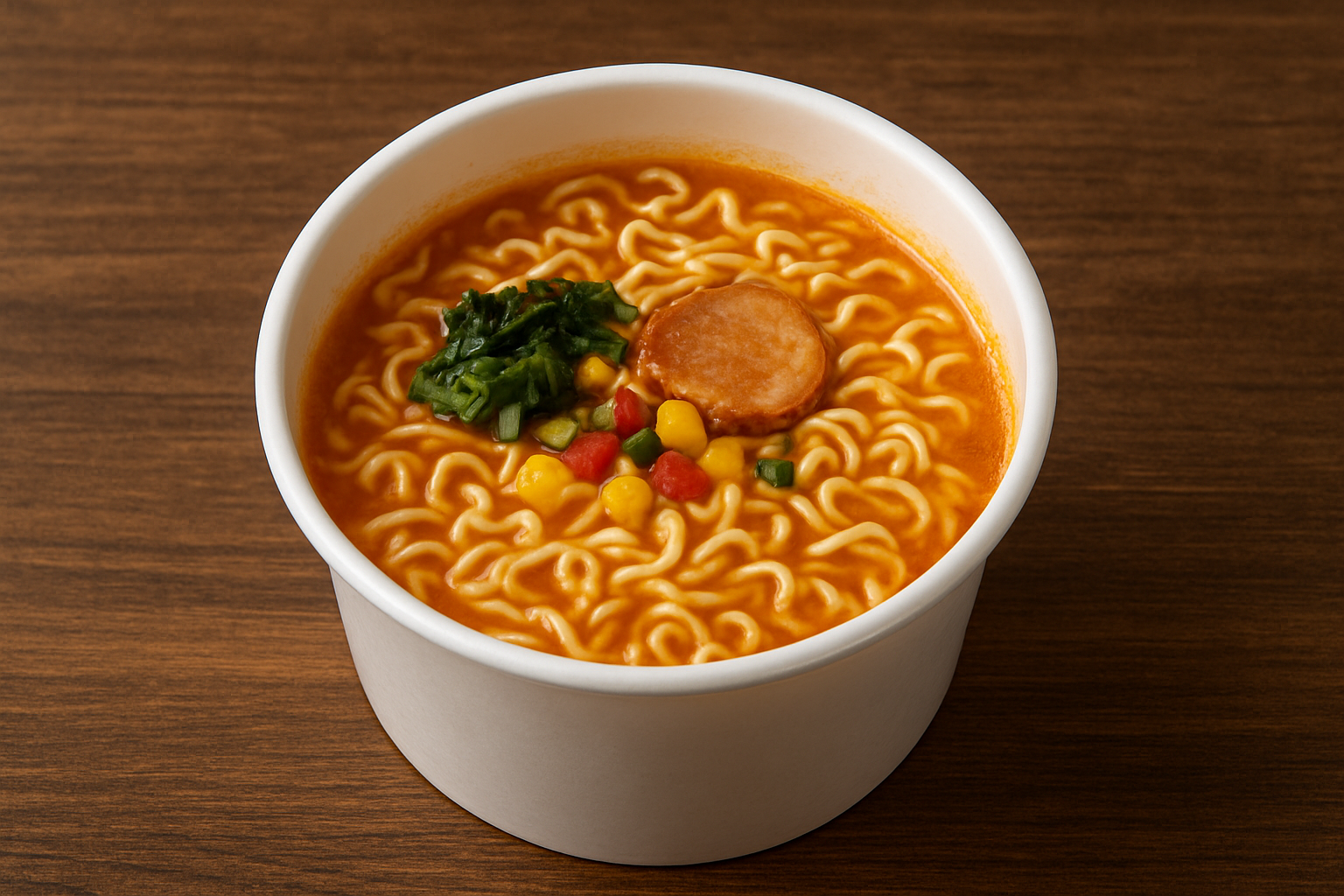1. The Illusion of Portion Size
Generally, a cup of instant noodles (small cup, approx. 65g) weighs less than a package of instant ramen (approx. 120g). Because of this, it is true that eating cup ramen results in a lower total intake of carbohydrates and calories than eating packaged ramen. However, one should not be complacent and think that the ‘burden’ on blood sugar is therefore small.
2. The Problems with Cup Ramen
– Concentrated Carbohydrates: Despite its small size, cup ramen delivers a significant amount of refined carbohydrates, saturated fat, and sodium through its fried noodles and soup packet. A single small cup contains more than half a bowl of rice’s worth of carbohydrates.
– Fast Eating Speed: Cup ramen is often eaten quickly, like a snack or during a busy time. The habit of eating fast causes blood sugar to rise even more sharply.
– Nutritional Imbalance: It leads to a meal consisting mainly of carbohydrates and sodium, without sources of vegetables or protein, making it very nutritionally imbalanced.
– The ‘Small Portion’ Trap: People often think it’s okay because of the small portion and add it as a snack or eat it with rice. This is one of the worst choices for blood sugar management.
3. Conclusion
Cup ramen is merely smaller in portion; its components are just as harmful to blood sugar and blood pressure as packaged ramen. The casual habit of eating cup ramen under the assumption that ‘it’s fine because it’s small’ can be a shortcut to spiking your blood sugar and harming your health without you realizing it. People with diabetes should avoid cup ramen as much as they avoid packaged ramen.
Summary: Although cup ramen may be lower in total calories than packaged ramen due to its smaller portion size, the quality of its contents—fast-acting refined carbohydrates and high sodium—is equally bad. A smaller portion does not make it a safe food for blood sugar.


Leave a Reply